Alliance Française
The Alliance Française was founded on July 21, 1883, by a group of renowned scholars including Louis Pasteur, Ferdinand de Lesseps, and Jules Verne, under the name "Alliance française pour la propagation de la langue nationale dans les colonies et à l'étranger" (French Alliance for the Propagation of the National Language in the Colonies and Abroad). The organization was established with the mission to promote the French language and francophone cultures globally. This mission has been notably successful, as evidenced by the Alliance Française's extensive global network, which today includes 832 centers in 131 countries, educating over 500,000 students annually (Wikipedia).
Differentiation:
The Alliance Française stands out due to its rich history and deep-rooted connections within the French cultural and educational landscapes. Unique to this program is its combination of language education with cultural immersion, which includes social and cultural events like art exhibitions and movie festivals that facilitate a comprehensive cultural experience alongside language learning (Wikipedia).
How to Get Started:
For homeschoolers interested in the Alliance Française, the process begins by locating the nearest local chapter through their global network. Enrollment can typically be done online or in person, depending on the chapter.
How it Works:
The curriculum is designed to cater to a wide range of age groups and proficiency levels, making it a flexible option for homeschooling families. Classes might range from a few hours per week to intensive courses, with additional cultural activities offered. The program is mostly classroom-based, necessitating some level of attendance, but many chapters also offer remote or hybrid learning options, especially in the current digital age.
Educational Content:
Comprehensive French language courses covering all levels from beginner to advanced
Cultural immersion through events and activities
Access to a global community of French speakers and cultural enthusiasts
Preparation for official French language certifications like DELF and DALF
What’s Good About It:
Users often praise the Alliance Française for its thorough and immersive approach to language learning. The integration of cultural components with language instruction is frequently highlighted as a significant benefit, enriching the learning experience and providing context to the linguistic elements taught.
What Could Be Improved:
Despite its strengths, some critiques focus on the variability in teaching quality between different chapters, which can depend heavily on the local management and instructors. Additionally, the cost can be a barrier for some, as fees are necessary to support the non-profit structure and quality programming.
Advice from Parents:
Parents recommend taking full advantage of the cultural events and extra-curricular activities offered by the Alliance Française to maximize the benefit from the program. Engaging with the community events not only bolsters language skills but also helps in developing a deeper understanding of French culture.
Who It’s an Ideal Fit For:
This program is ideal for students who thrive in structured, culturally immersive educational environments. It suits those interested in not only learning a language but also in engaging deeply with the culture that surrounds the language.
Who It’s Probably Not a Fit For:
It may not be ideal for families looking for a casual, low-commitment language learning setup or those with limited access to an Alliance Française chapter.
Grades:
The program is suitable for K-12 students, with varying levels of courses appropriate for different age groups and learning stages.
Cost:
Costs vary widely depending on the location and specific offerings of the local Alliance Française chapters but typically range from $100 to $300 for a standard course.
Ways to Get It:
Interested families can enroll through their local Alliance Française chapter. Information is typically available on the official Alliance Française website, where one can find details about local chapters, available courses, and enrollment procedures.
Affiliate Disclaimer: Some links on our site are affiliate links, which means Modulo may earn a small commission if you purchase through them (at no cost to you). Rest assured, we only recommend resources we’ve rigorously vetted and truly love—affiliate link or not. Thank you so much for supporting our work!
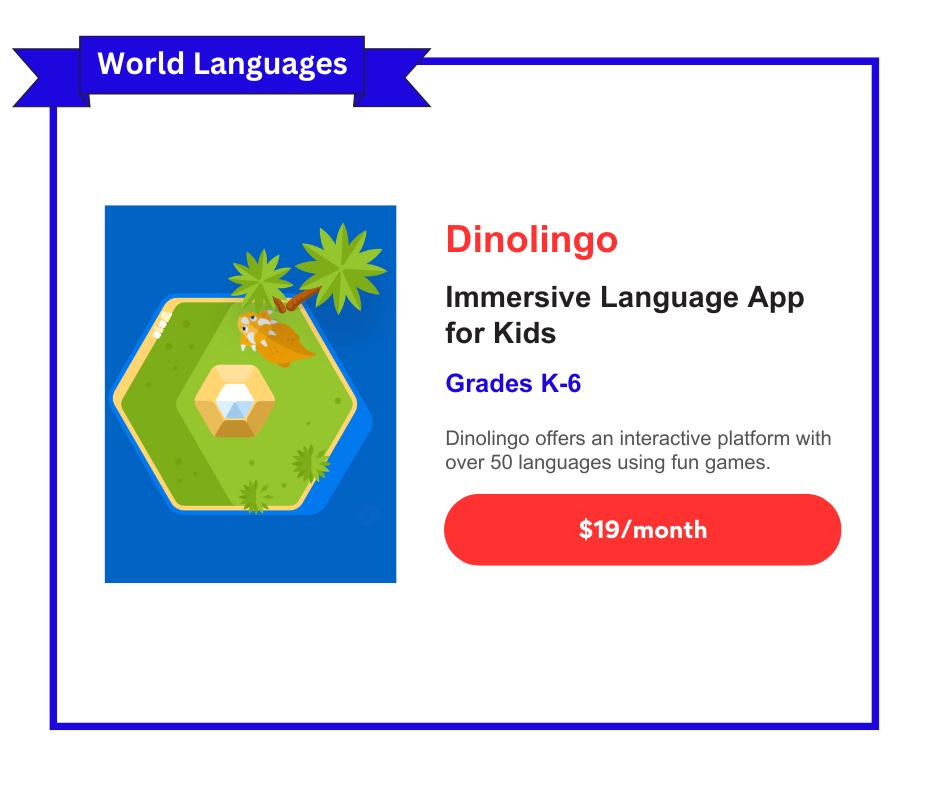
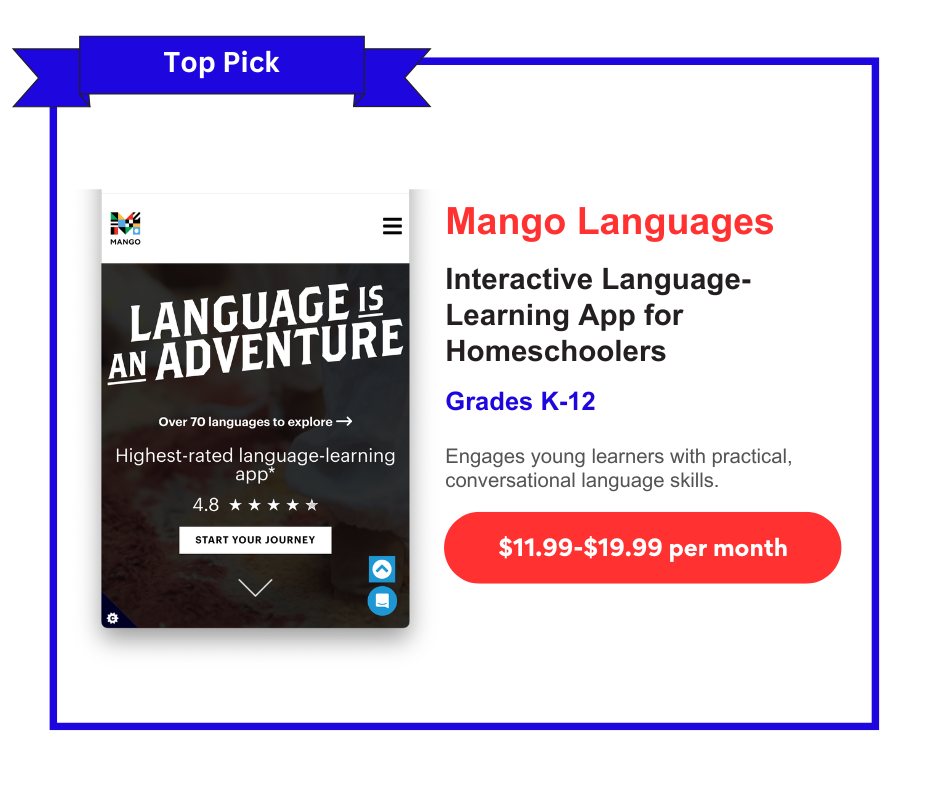
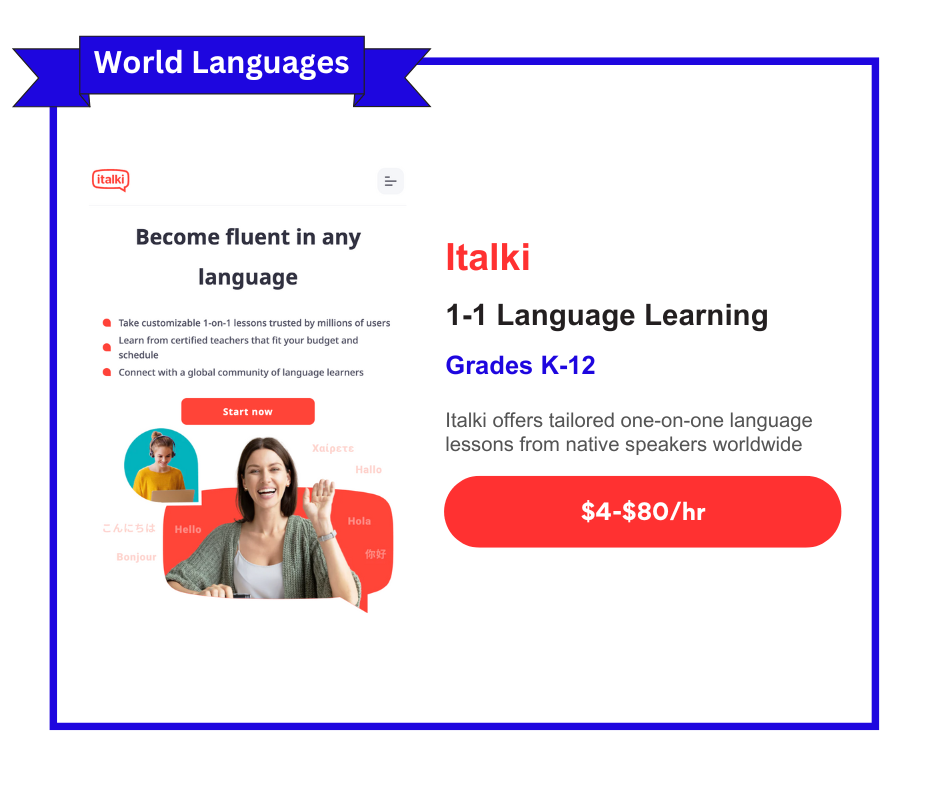

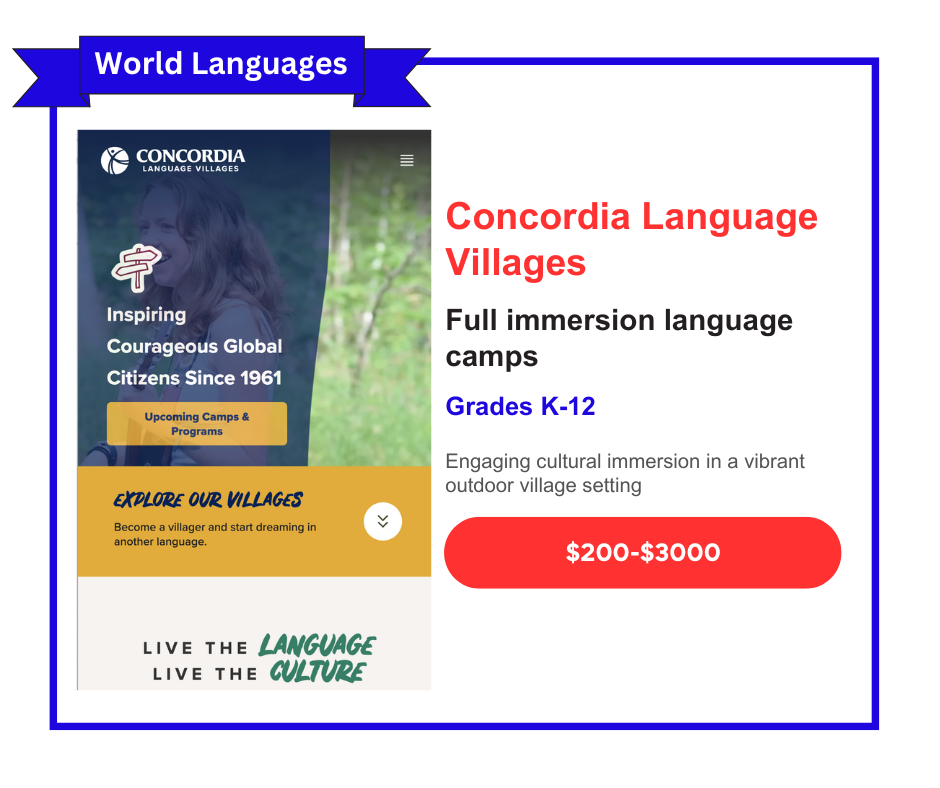
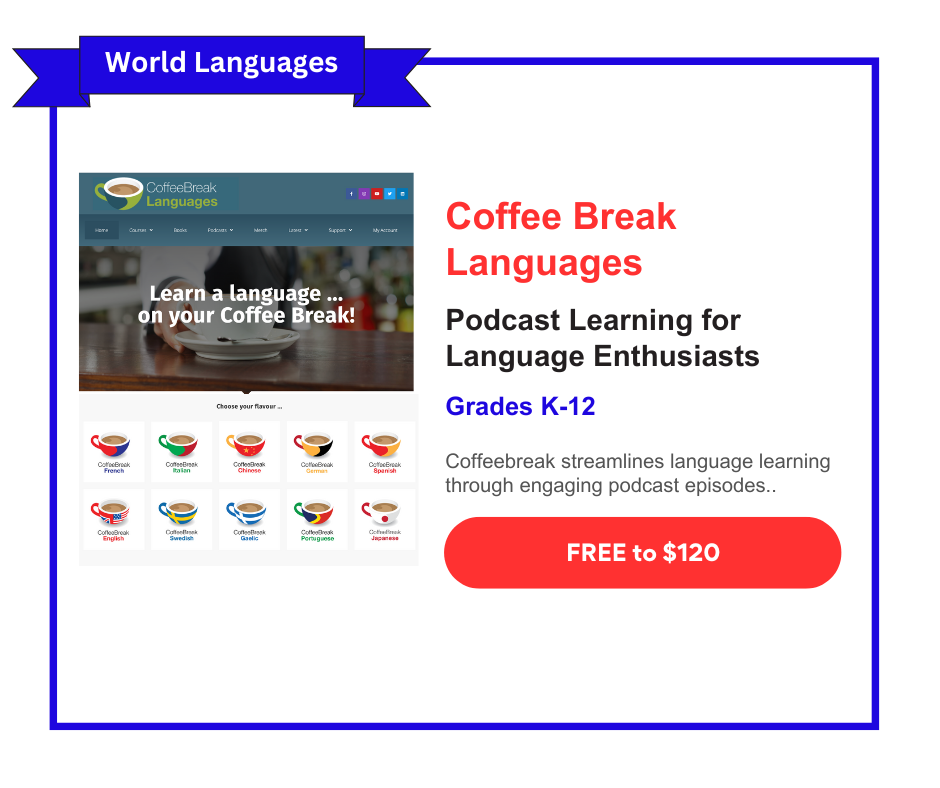
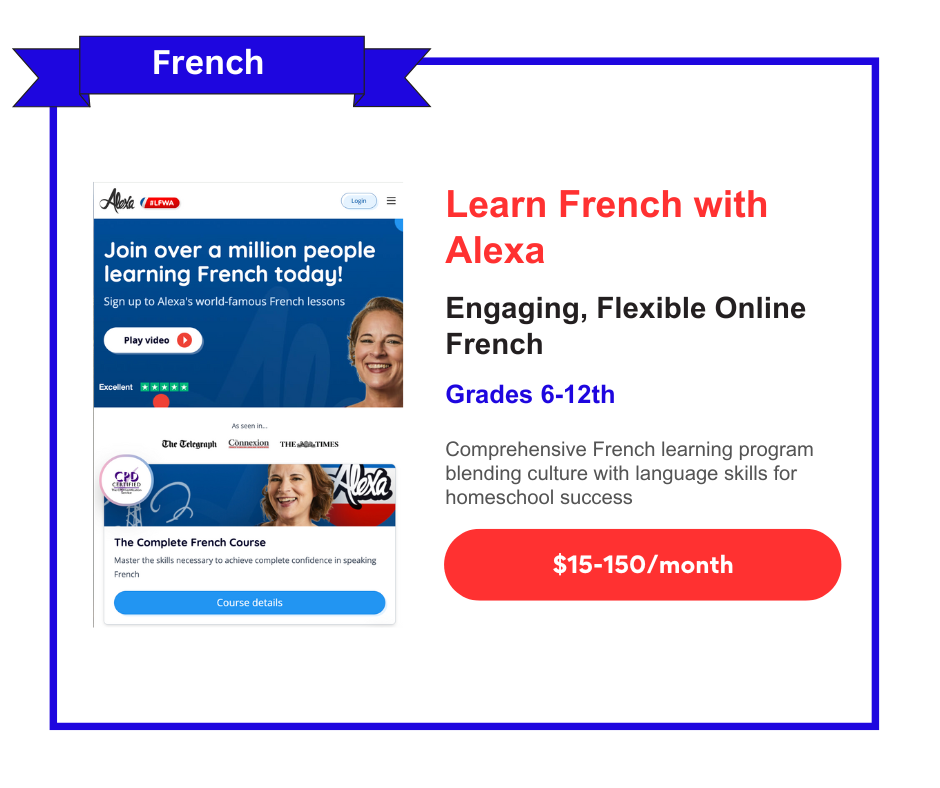
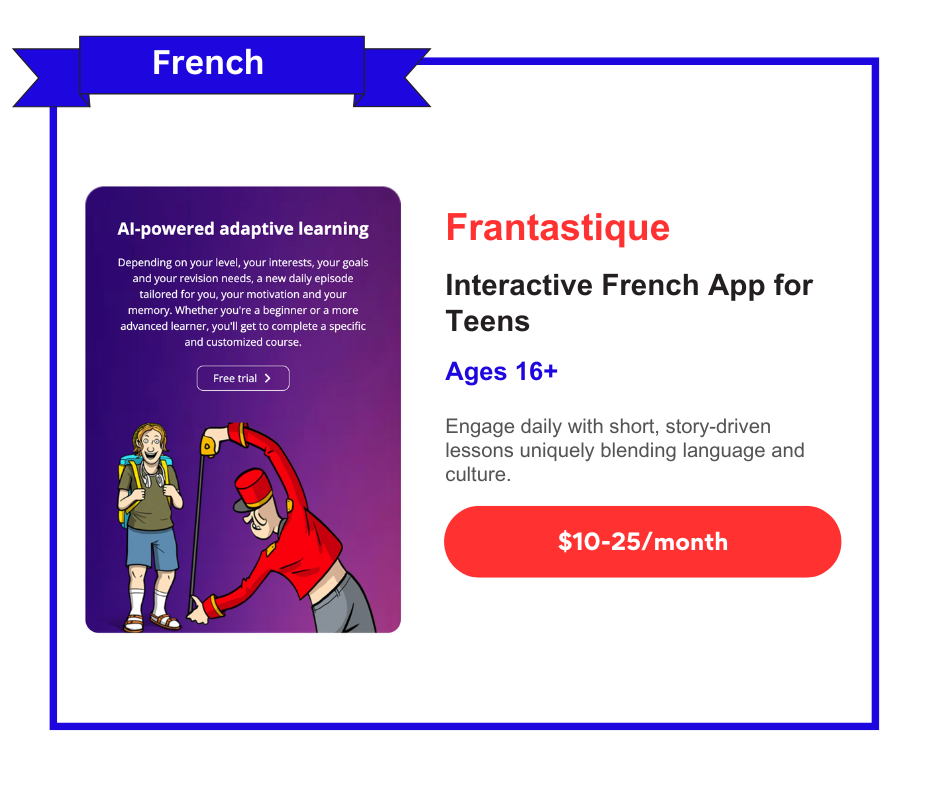
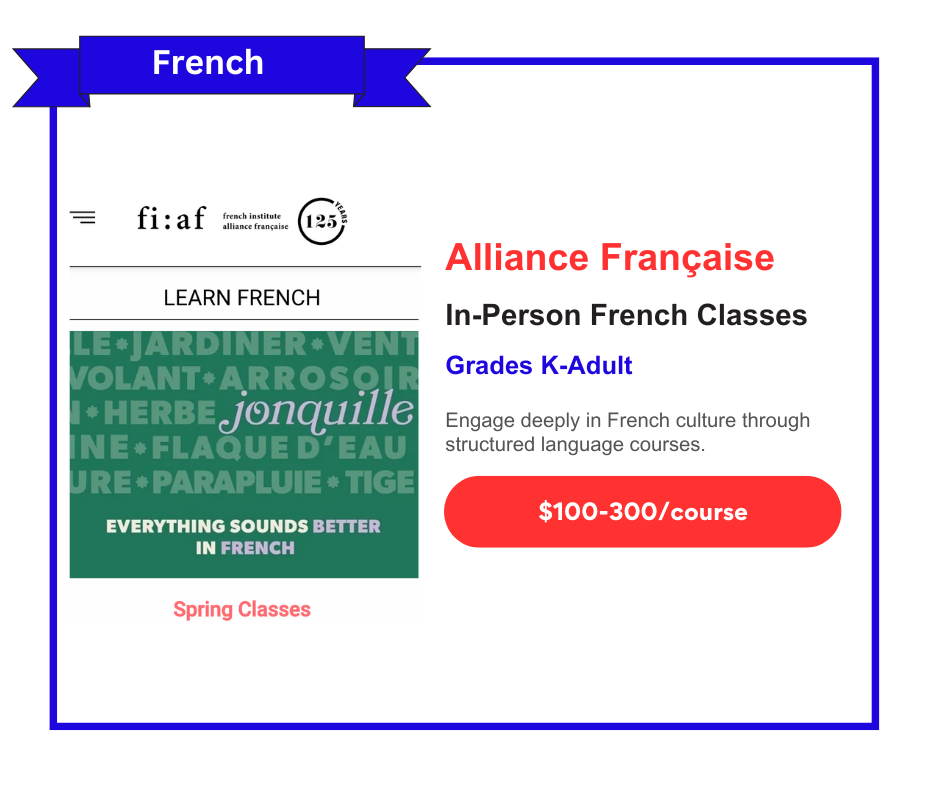
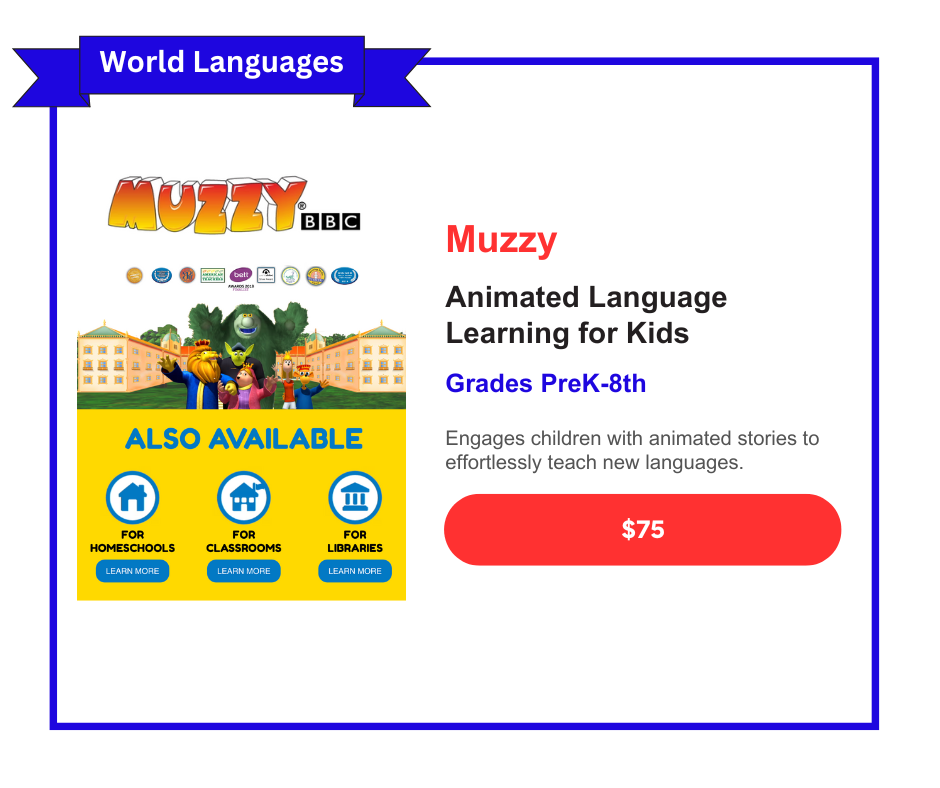
Explore how Duolingo transforms language learning into an engaging, gamified experience with our comprehensive review, ideal for homeschoolers seeking a flexible educational tool.